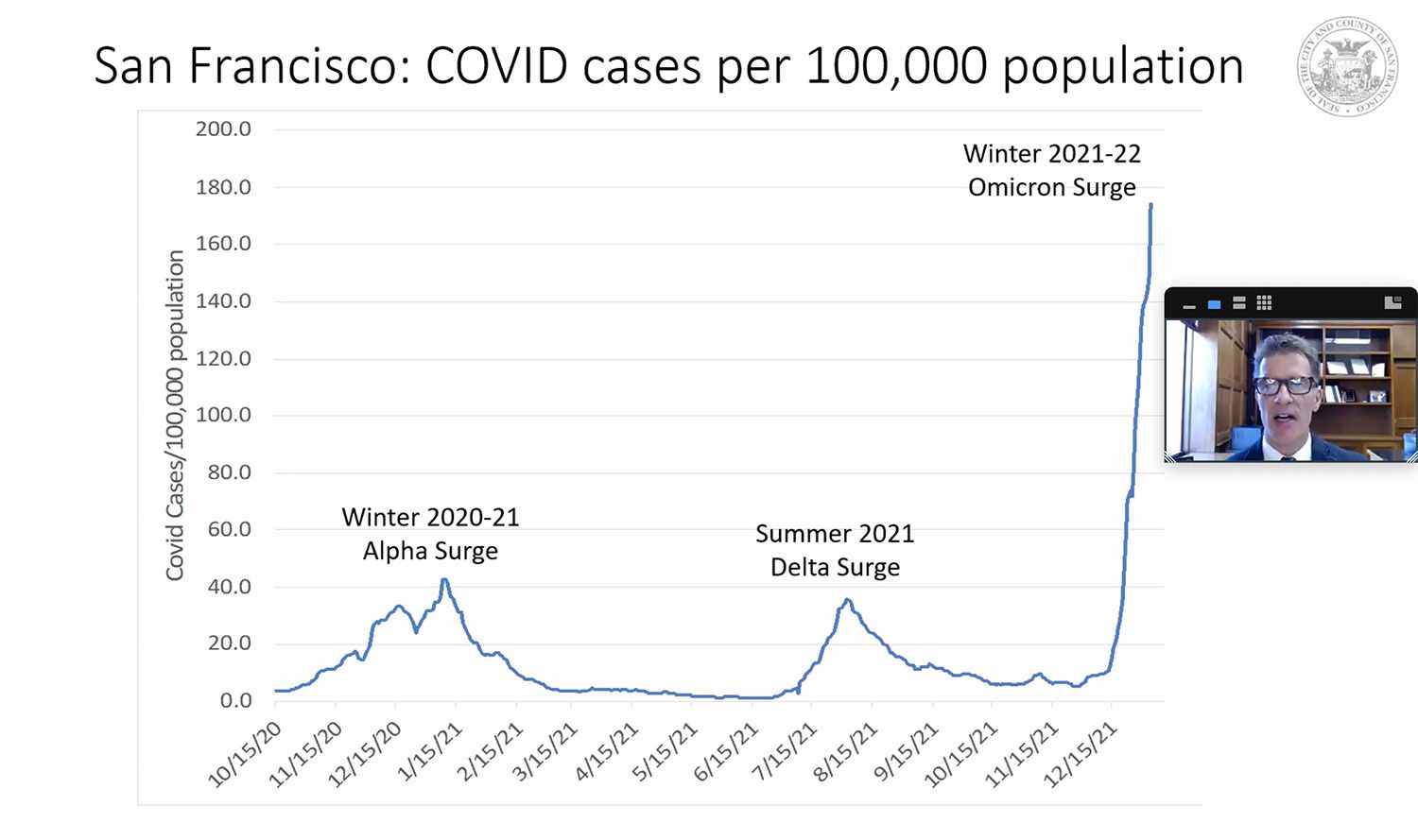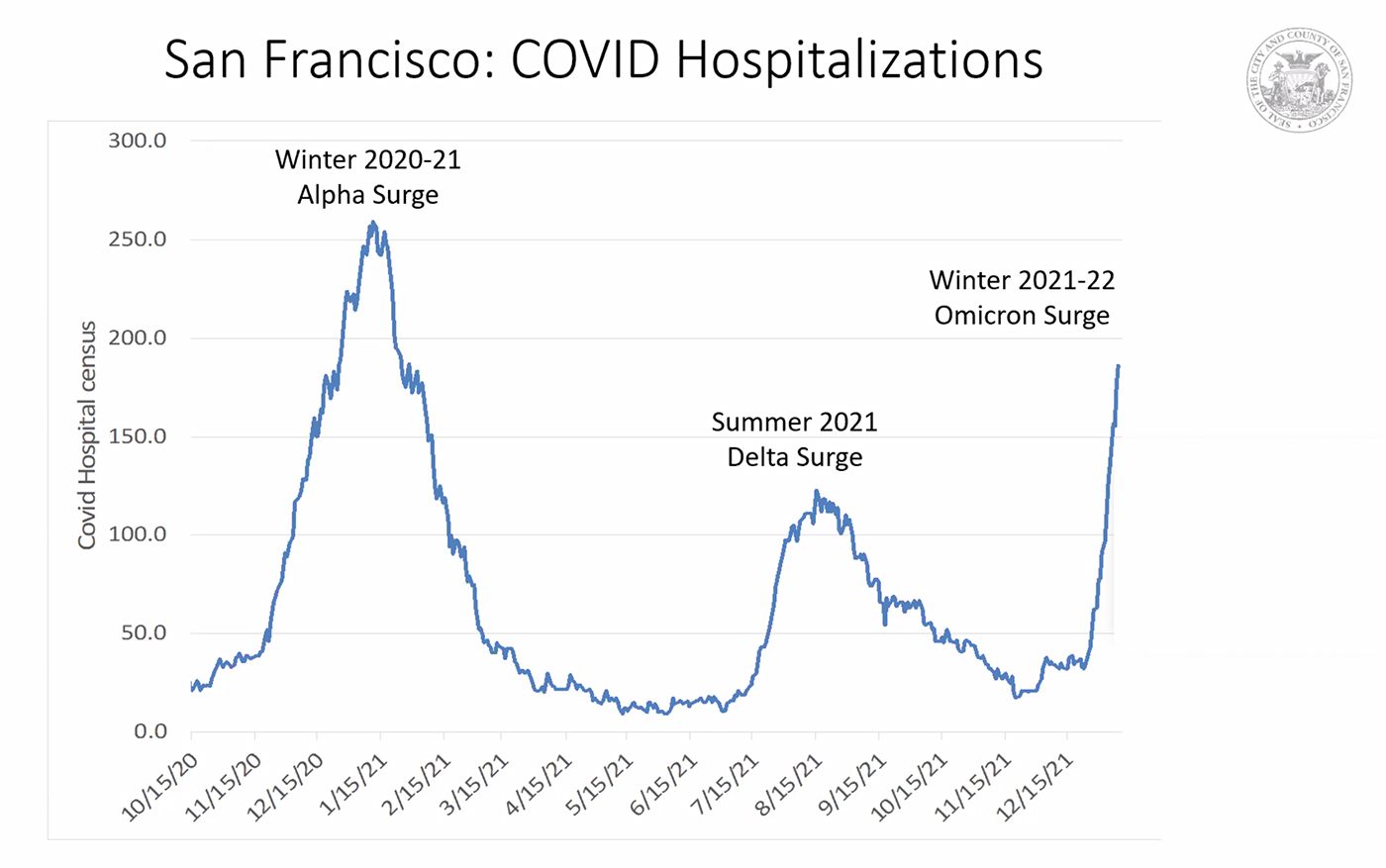A morning press briefing by San Francisco Mayor London Breed and other city officials didn't bode well given the massive surge in new COVID cases. But in a reversal from earlier, less-dramatic case surges, no new restrictions on business activities are being ordered in the city — and we need to "learn to live with this virus," Breed says.
An order late Monday from Sonoma County's health officer, ordering a limit on indoor gatherings to 50 people (1oo people for outdoor), and making a vague plea for people to stay home for the next 30 days, felt like a harbinger of more lockdown orders to come. But a hastily scheduled briefing by San Francisco's health department Tuesday turned out to be more of a general status update, and a note of optimism from department director Dr. Grant Colfax.
In addition to saying that he did not believe that the city's intensive-care departments would be stretched in this surge, Colfax said, "I am cautiously optimistic that we will learn to live with this virus and continue to be a healthy and vibrant city." And both he and Mayor Breed reiterated the forecasts of many experts saying that this surge is likely to peak soon and begin abating quickly.
"Our workforce is stretched, but they are holding through this surge to provide the services that our city needs," Breed said, after tallying the hundreds of city workers, police officers, and MTA employees who are currently out sick with Omicron. "We know this is a really tough time, but like I've said in the past, this is about learning to live with this virus," Breed said, adding, "We are not imposing new restrictions."
But both Breed and Colfax had stern words for "our healthcare partners," by which they meant private healthcare networks like Sutter Health, Kaiser, and others, for not adequately meeting the current demand for testing — and instead pushing more people to use city-sponsored testing sites, causing them to be overstretched.
"Today is no time to go backwards," Breed said, urging all healthcare providers to step up and do their part with testing, or else face potential fines.
"The truth is, the Department of Public Health has pushed its capacity during this latest surge, doubling our testing from early December to more than 10,000 tests per day," Breed said. "But to meet the current demand... we need all of our private health care providers to step up and do your part and to not just send people to the city resources, but to make sure you’re are providing resources that the members and the city are paying you to provide."
Dr. Colfax showed charts comparing previous surges both in terms of new cases and hospitalizations. And while the hospital census is expected to rise in the coming week, he predicted that the city will get through this surge without running out of ICU beds.


Colfax added that the city had "more than doubled" its testing capacity since this surge began, and last Monday, January 3, the city conducted over 17,700 tests in a single day — far outpacing rates across the state.
"We are in the middle of the worst of this Omicron surge... many of you may be wondering what comes next," Colfax said.
And the answer, basically, is we ride this out, try not to put ourselves at too much risk, wear N95s or double masks in indoor public spaces, and continue to protect the vulnerable and vaccine-ineligible, like small children. He urged vigilance about testing after exposure, while acknowledging the challenges in finding at-home tests — and yesterday's troubles with city testing sites.
Related: Bay Area Cases See Huge Spike After NYE; Poll Finds 9 in 10 Americans Know Someone Who's Had COVID

